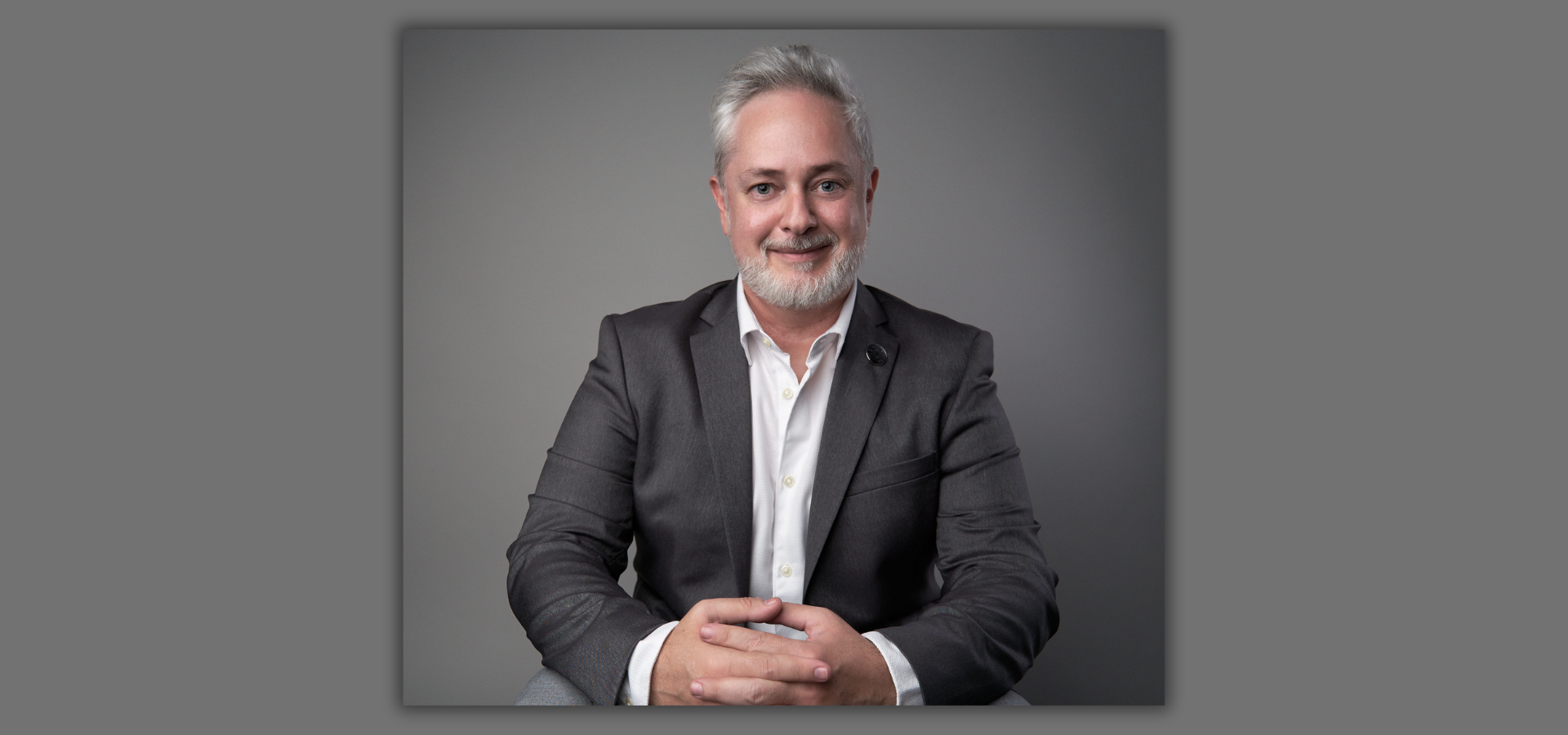
Throughout the month of September, the GMA is celebrating all things Hispanic Heritage and Latin Music. We had the opportunity to sit down with industry professional Abraham Diaz and hear about his history with Latin music.

Tell us your history with Latin Music.
My story with Latin music isn’t just about all the rich, vibrant genres; it’s also about the soundtrack of my faith. Born and raised in Mexico, I was surrounded by various Mexican styles at home and school from a young age. Growing up in a Christian environment, my earliest memories include my grandparents playing traditional hymns and ‘coritos’ (Gospel folk songs) at home. My grandmother, a pianist and church choir director, performed beautifully each Sunday, accompanied by my grandfather’s melodious voice.
At ten, I gave my heart to the Lord, the most important decision of my life until this day. Around that time, I received a cassette of contemporary Christian music in Spanish by Marcos Witt. Little did I know that from that moment on, his ministry, music, and life would deepen my understanding of worship, service, and love for Jesus.
Music profoundly shaped my understanding of life, my calling in Christ, and my connection with others. From an early age, I was drawn to genres like Mexican cumbia, tropical music, norteña, regional Mexican, and Latin rock. Later, as a teenager, when we moved to Houston, I became captivated by the sounds of merengue, salsa, Tex-Mex, and banda. During this time, I also discovered Contemporary Christian Music (CCM) on the radio, which became a new spiritual resource for me. The thrill of attending my first Christian concerts, including Michael W. Smith’s Go West Young Man Tour and a DC Talk show from their Free at Last concert series, ignited a passion within me for Christ-centered music.
Immersed in the diverse world of Spanish and English music, I embarked on a transformative journey that bridged the vibrant cultures of the United States and Latin America, along with their unique musical identities. Music lessons further enriched my life, fostering meaningful connections with others and deepening my heart for worship. I believe God used this music to reveal His creative genius and help me find my place in building His Kingdom.
My professional journey in the Spanish Christian music industry began in 1998 at CanZion Institute, founded by Marcos Witt. I delved into theological and musical studies. In 2000, I became Witt’s Executive and Personal Assistant. Under his mentorship and leadership, I embarked on a transformative two-decade career rising through the ranks at what is today known as CanZion Networks, where I remain actively involved in guiding teams and strengthening the company’s day-to-day strategic direction.
What defines the Latin music genre?
I would say, Latin music is like a revival celebration for your senses; it awakens inner rhythms and emotions you didn’t know you had inside.
In actual fact, Latin music serves as an umbrella term encompassing a distinct array of musical styles and genres originating from over twenty countries and regions, including Mexico, Colombia, Puerto Rico, Brazil, Argentina, Cuba, and the Dominican Republic. From the energetic rhythms of salsa, reggaeton, and merengue to the romantic ballads of bachata and bolero, and the festive sounds of cumbia, mariachi, and norteño, the spectrum is vast. This is just a glimpse; countless other styles, from the sophisticated bossa nova, the passionate tango, and the Afro-Cuban jazz, contribute to Latin music's rich and complex identity.
Spanish Christian music has emerged as a dynamic force within the broader Latin music landscape over the past five decades. By seamlessly blending Gospel messages with a diverse array of popular styles, from modern Latin rhythms to Pop, Indie Rock, and Contemporary Worship, this genre has resonated with audiences both within and outside the faith community. This musical fusion has not only help preserve cultural and spiritual heritage but also fostered intergenerational connections, making Spanish Christian music a vital component of the evolving faith-based music scene.
Overall, Latin music is about expressing emotion and passion. It evokes feelings ranging from joy and love to sorrow and nostalgia. Whether it makes you want to dance or resonates deeply on an emotional level, the impact will be undeniable and enduring. These elements collectively define Latin music not as a single genre, but as a sonic journey through the heart and soul of Latin America, making it a captivating force on the global stage.
How is Latin music influencing culture today?
The release of “Despacito” in 2017 was a watershed moment, breaking language barriers and boosting Spanish-language music’s global popularity. This hit not only topped global charts but also sparked interest in Latin rhythms, leading to more Spanish tracks in mainstream charts and collaborations between Latin and non-Latin artists. This pivotal moment has made Latin music a dynamic force that transcends borders in a global culture, connecting people from diverse backgrounds.
Furthermore, Latin music's influence extends beyond the auditory experience, evolving into a cultural phenomenon. Its infectious rhythms and melodies have inspired pop artists worldwide to incorporate Latin elements into their own music. This cross-pollination has birthed new and exciting sounds, including groundbreaking bilingual works, pushing the boundaries of music and fostering a global appreciation for Latin culture.
Economically, Latin music’s impact is impressive. The market share of Latin music styles has surged by 216% worldwide since 2019. Revenues in Latin America have soared by 25% in the last two years, with key markets like Brazil and Mexico experiencing double-digit growth. The dominance of streaming platforms, which account for 85% of the Latin American market, highlights the genre’s alignment with digital consumption trends. Platforms like Spotify have highlighted this growth, with 2023 marking the most successful year for Latin music ever.
Latin music has evolved into a powerful cornerstone of Christian-evangelical outreach. Its influence is underscored by recognition on prestigious stages, including the Latin GRAMMYs, Billboard Latin, and Telemundo’s Latin AMAs. This elevation has solidified Spanish Christian music’s prominence and created unprecedented opportunities for Christian artists to collaborate with mainstream counterparts. These partnerships expand Spanish Christian music's reach, delivering hope and faith through innovative sounds and inspiring faith-based music.
In recent years, the reggaeton and Latin hip-hop genres have witnessed a notable shift as prominent artists embrace their faith in Jesus. Two of the most iconic figures to undergo this transformation are Daddy Yankee, known also for hit song "Despacito," and Farruko. Both artists have since embarked on new musical paths, using their influence to share their Christian beliefs with a massive audience, marking a significant turning point in the evolution of Latin urban music.
Moreover, the convergence of Contemporary Christian Music (CCM) and Spanish Christian Music has ignited a new era of creativity. Both genres share a pursuit of sonic possibilities, where languages intertwine, and styles complement each other. This interplay has given birth to original compositions, not mere translations, that blend English and Spanish. Recent collaborations between Tauren Wells and Sarai Rivera, For King & Country and Miel San Marcos, Evan Craft and Danny Gokey, or Andy Mineo and Un Corazon exemplify this exciting trend, demonstrating how this fusion creates a new musical adventure.
In essence, Latin music is more than just music; it serves as a cultural ambassador, uniting people through its diverse rhythms, language, and shared human experiences.
For someone new to Latin music, where is a good place to start?
To dive into this musical world, start with a “Best Of” or “Essentials” playlist on your favorite streaming platform. Begin your journey in the 1960s with the romantic boleros of Julio Iglesias and the vibrant rhythms of Cuban salsa, pioneered by Celia Cruz, Benny Moré and Pérez Prado. These artists laid the foundation with genres such as mambo, cha-cha-cha, and son cubano.
The 70s brought the electric energy of disco with Gloria Estefan and the Miami Sound Machine, while the romantic ballads of Mexican great Juan Gabriel captured hearts across Latin America. Delve into the music of Carlos Santana, whose fusion of rock and Latin music became iconic. Embrace the salsa rhythms with artists like Willie Colón, Héctor Lavoe, and Rubén Blades, who brought the genre to international acclaim.
The 80s and 90s were pivotal for Latin pop and rock en español, so check out the trailblazing sounds of Soda Stereo and Caifanes. These decades were marked by the rise of iconic figures like Tex-Mex superstar Selena Quintanilla and Mexican pop icon Luis Miguel. They also witnessed the global phenomenon of reggaeton, with artists like Daddy Yankee and Don Omar redefining the urban landscape.
In addition to mainstream Latin music, Spanish Christian music has also made a significant mark. Explore the powerful worship and contemporary sounds from artists like Marcos Witt, Jesús Adrián Romero, Alex Campos, Marco Barrientos, Danilo Montero, Marcela Gándara, Tercer Cielo and Jaci Velasquez. Merengue superstar Juan Luis Guerra has also woven his Christian faith into many of his most beloved songs. Their faith-filled melodies have touched millions, and delving into the rich history of evangelical music in Latin America will provide a deeper understanding of this genre.
To deepen your appreciation for Latin music, explore its cultural and historical roots. Documentaries like "Buena Vista Social Club" by Wim Wenders and "Salsa: Latin Pop Music in the Cities" offer fascinating insights. PBS's "Latin Music USA" provides a comprehensive overview of the genre's evolution and impact in America, highlighting key moments and figures that shaped Latin music into the diverse and dynamic force it is today.
ABOUT ABRAHAM DIAZ
Abraham Diaz is a record label executive in the Latin music industry with over two decades of uninterrupted experience at CanZion Networks. Currently serving as the Business Affairs Manager and VP of Artist Management, he has been pivotal in establishing the company as a global leader in Spanish Christian music. During his tenure, Abraham has spearheaded transformative initiatives, including the successful transition from physical to digital distribution, and the forging of direct partnerships with digital streaming platforms. His past collaborative efforts with multi-Latin GRAMMY and GMA Dove Award-winning artists, combined with his expertise in talent development, large-scale concert production, global marketing campaigns, and international distribution, were instrumental in forming highly successful strategic alliances with industry leaders like Capitol Christian Music Group, Integrity, Provident, and Hillsong, significantly expanding the company’s global footprint and influence.
CanZion Networks, a leading force in the Latin music industry specializing in Spanish Christian music, was established in 2019 through a joint venture between CanZion Group and the tech-driven Heaven Networks, designed to pioneer the next generation of digital innovation and strengthen digital expansion. The company represents a portfolio of renowned record labels, including Heaven Music, CanZion, Reyvol Records, UNO Records, NOMAD Music House, Heaven Kids, ConRitmo and Selah Music, holding a significant market share. Headquartered in Houston, TX, with a diverse team spanning Latin America, CanZion Networks excels in recorded music, digital distribution and music publishing for the digital age across the region. The company’s comprehensive operations also include a proprietary marketing agency and video production unit, allowing for end-to-end control over its content. Notably, CanZion Networks is the sole owner and proprietor of its extensive music catalog, granting the company unparalleled creative and operational autonomy.
##


.jpg?width=352&name=Joseph%20Habedank(1).jpg)

